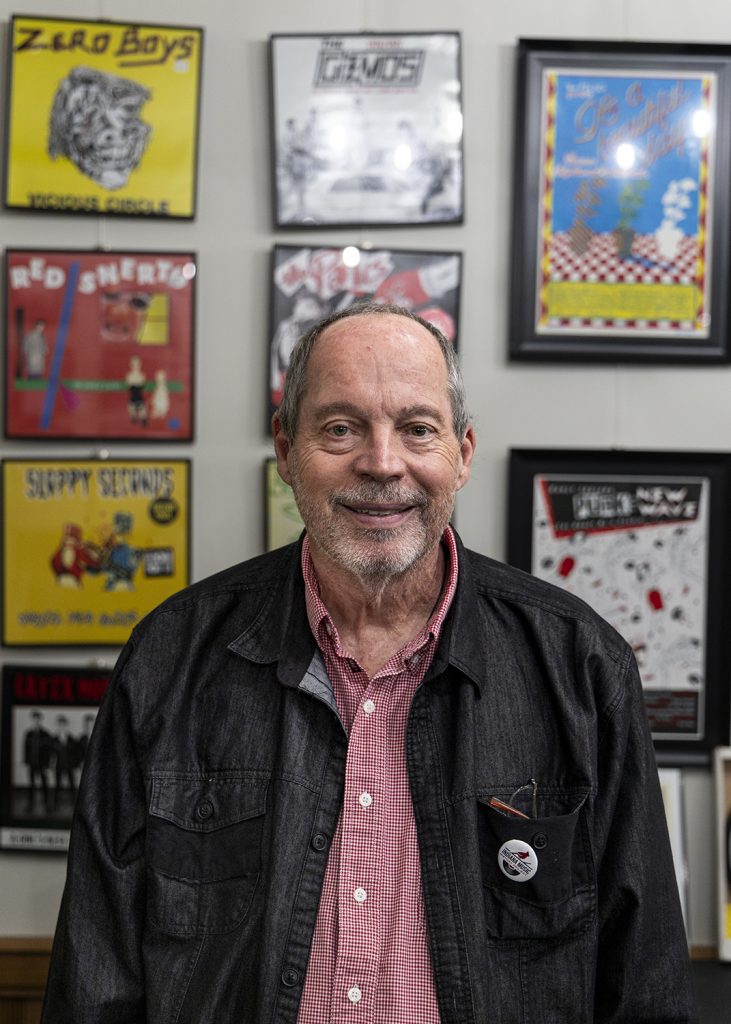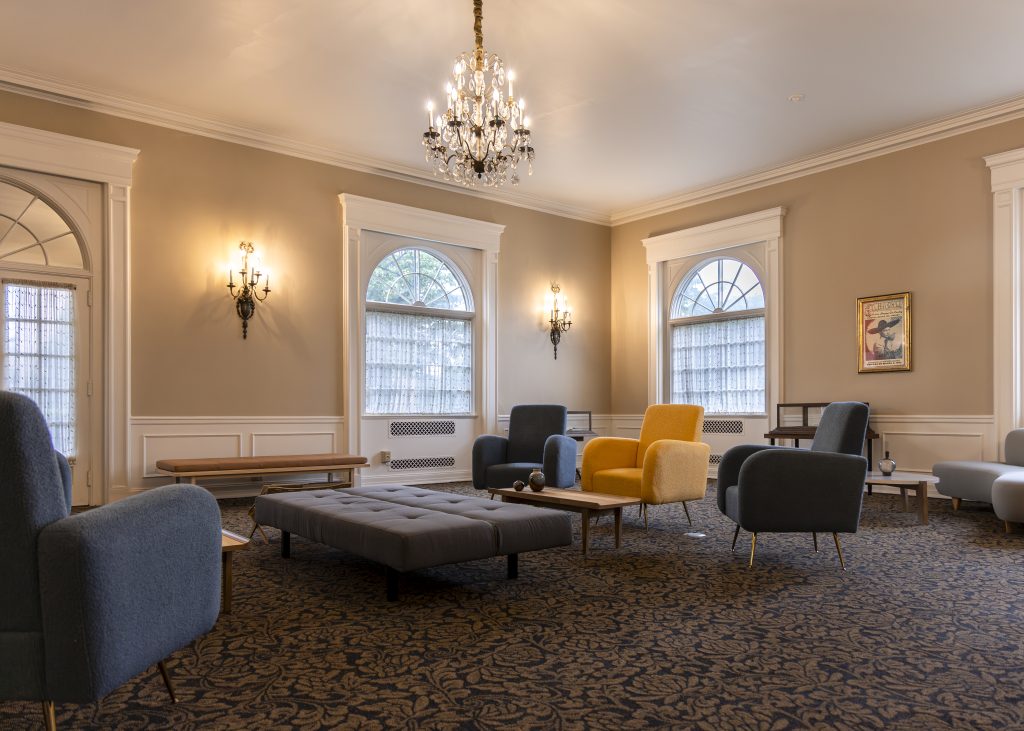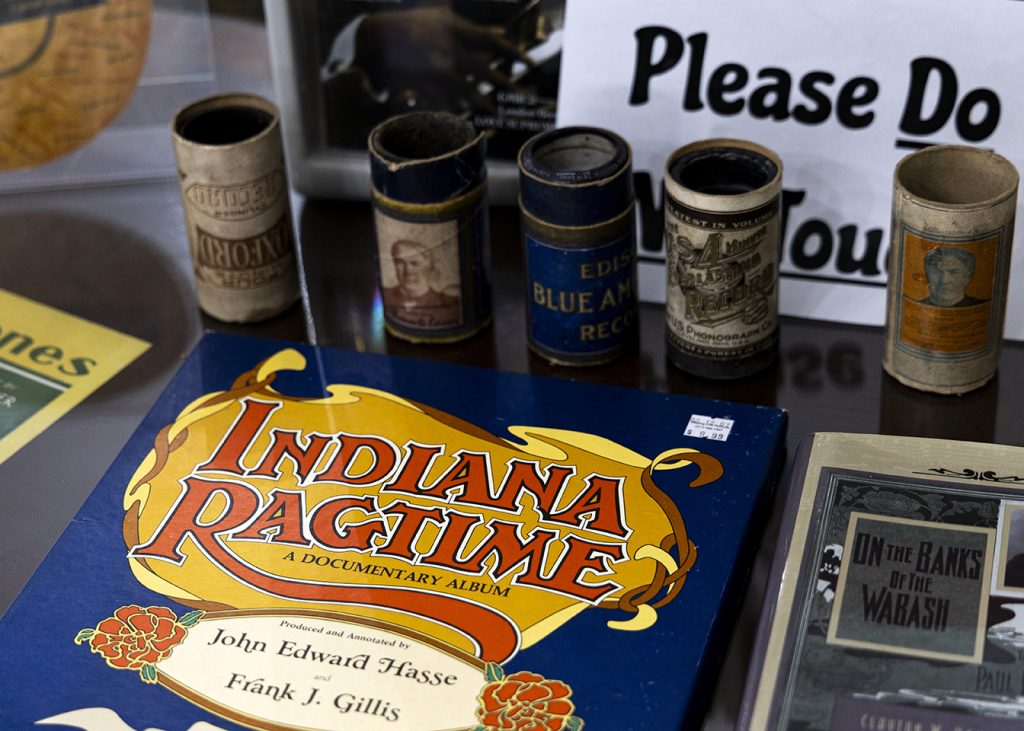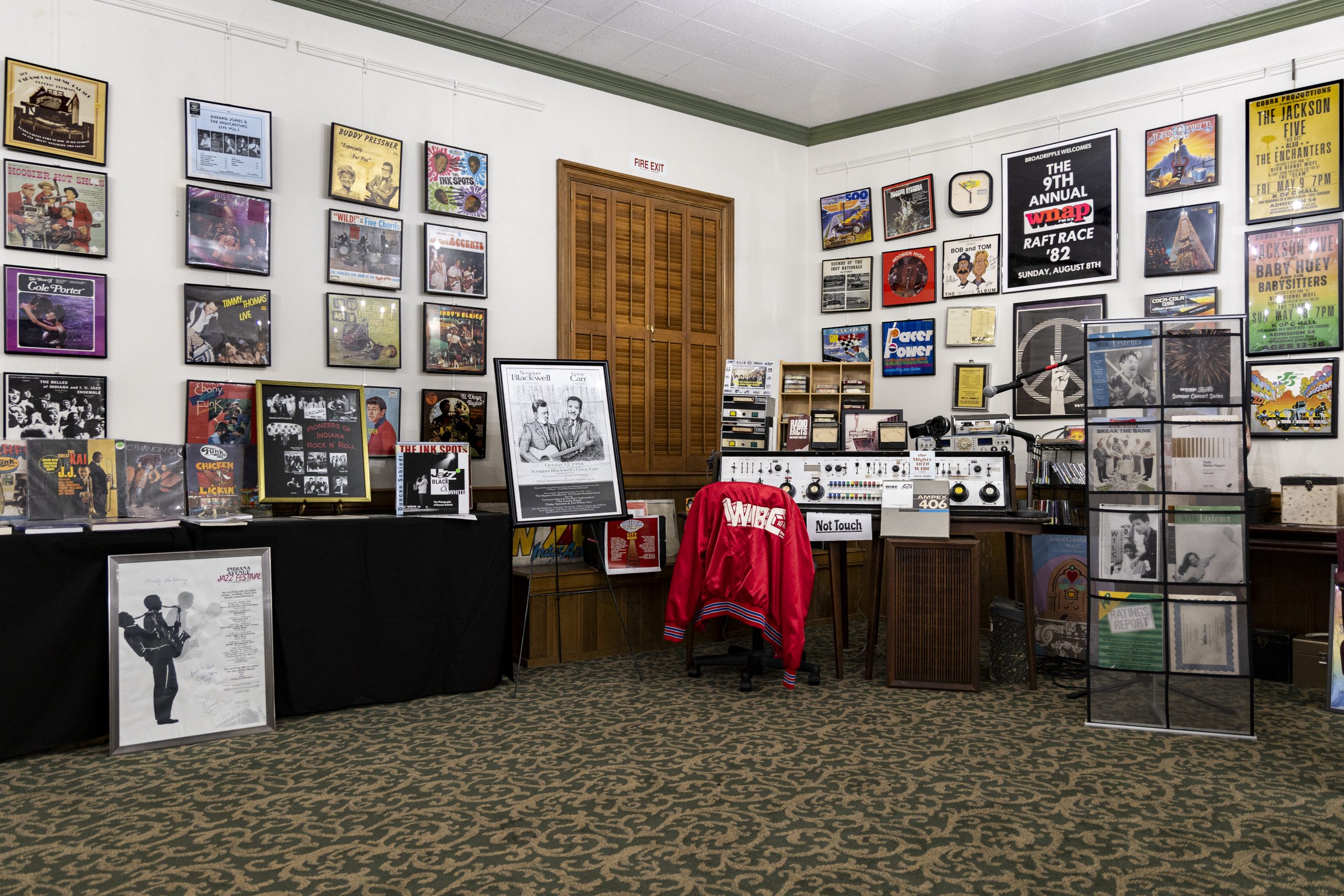Rick Wilkerson & the Indiana Music Project’s Next Chapter
Words and Photos by Lydia Norton
Tucked away in the basement of a Broad Ripple Funeral Home, a time machine awaits. What were once blank walls are now splashed with color from albums by The Jackson 5, The Ink Spots, and The Gizmos. Framed concert posters fill the remaining space, and shelves overflow with records, tapes, and CDs. Each artifact adds a chapter to Indiana’s rich music history. Sitting in the middle of the room with reading glasses tucked in his left shirt pocket and a small pin that reads “Indiana Music History Project” with a small cardinal, is Rick Wilkerson. He serves as the Executive Director of the Indiana Music History Project, and preserves thousands of artifacts–each one revealing valuable and largely unknown pieces of Indiana’s musical lineage.

Wilkerson fell in love with rock and roll at an early age, growing up in Terre Haute. He landed a job at one of the local radio stations and was pulled into the music scene. This led him to follow his dream and open his own record store, Missing Link. In 2008, as digital downloads rose and physical music sales declined, Wilkerson was forced to close the store. He joined a friend and started an antique store, where he stocked what he estimated to be “about a thousand leftover records,” without much consideration for whether they would be sold. To his surprise, the vinyl started to sell quickly.
“We were doing more business with vinyl than we were with antiques,” Wilkerson says.
Seeing the buzz around vinyl again lit a spark. He partnered with Kathleen Angelone, owner of Irvington’s Bookmamas, to form Bookmamas and Irvington Vinyl. During this time, Wilkerson, along with others, used his passion for music to start IMHP, an organization dedicated to collecting and preserving artifacts of Indiana’s rich music history.
“We are now considered the largest known archive of Indiana music,” Wilkerson says with pride.
Built On Donations
IMHP’s growth depends on donations. Wilkerson donated his collection to the Project in 2023, which he estimates to be about 5,000 artifacts. This year marks the 10th anniversary of the organization, and with this, brings a new community lounge and event space decked out with grand windows and colorful lights. IMHP also expanded its reach across Marion County with exhibits full of music memorabilia and stories from the past. They have started collecting oral histories highlighting the stories of important figures from Indiana’s music history.

Remembering the Hoosier Legacy
Despite this diverse collection, Hoosiers remain unaware of the legacy. “Nobody’s ever told them. It’s not in the school curriculum,” Wilkerson says, defeated. He pauses, lifts his eyes, and says unwavering, “We’d like to change that someday.”
The timeline of the collection spans from the early gospel records produced by Gennett Records, the buzzing sounds of Indiana Avenue’s vibrant jazz scene, to the raw punk bands formed in garages in cities around the state.
When asked what he wants people to walk away with after viewing the archive, Wilkerson doesn’t hesitate.
“Pride,” he says with a small twinkle in his eyes and a smile. “Almost everybody who comes down here is happy to know we contributed more to the music world than most people know.”
This isn’t to say Indiana’s history is completely forgotten. Wilkerson explained that jazz scholars often place Indiana Avenue among the top five cradles of jazz. While the original Indiana Avenue no longer exists, its spirit echoes in places like the Chatterbox Jazz Club, the Jazz Kitchen, and the Hotel Carmichael Lounge.
“We’re standing on the shoulders of giants and we don’t even know it,” Wilkerson says.

The Project plays a critical role in keeping this legacy alive. Through education and preservation, the Project seeks to highlight key moments in Indiana’s history and recognize its impact on the community today. Community support—through donated memorabilia, volunteering, or attending exhibitions—remains essential to sustaining the story of Indiana’s rich musical history.
“Without a sense of our own musical history, no matter what genre or locality, today's musicians could miss out on important stories and musical influences that could help shape their future,” Wilkerson says.
Indiana’s music history isn’t lost, it’s just been waiting to be heard. The Indiana Music History Project is more than a collection; it’s a call to remember, to celebrate, and to participate.



